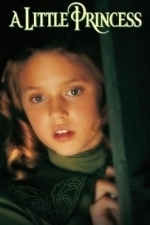Search
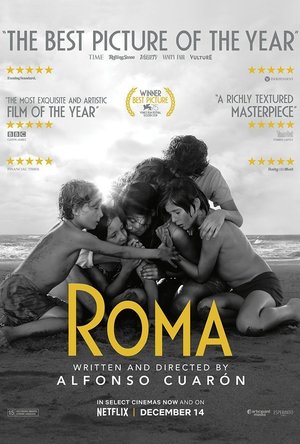
Roma (2018)
Movie Watch
A story that chronicles a year in the life of a middle-class family in Mexico City in the early...
Andy K (10821 KP) created a poll
Jan 22, 2019
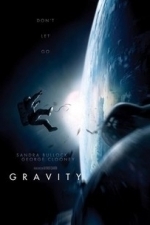
Gravity (2013)
Movie Watch
Receiving seven Oscar® wins, Gravity stars Academy Award® winners Sandra Bullock (The Blind Side)...
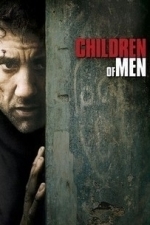
Children of Men (2006)
Movie Watch
No children. No future. No hope. In the year 2027, eighteen years since the last baby was born,...
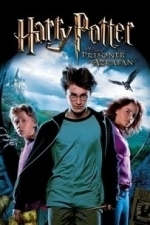
Harry Potter and the Prisoner of Azkaban (2004)
Movie Watch
It's Harry's third year at Hogwarts; not only does he have a new "Defense Against the Dark Arts"...
Andy K (10821 KP) rated Roma (2018) in Movies
Jan 8, 2019
Beautiful but pointless
I guess I expect a little more from Alfonso Cuarón, director of Gravity and Children of Men, than a slightly boring film about a year in the life of a Mexican family in the 1970s. The film focuses on the lives of an upper middle class couple, their kids and their maid as they go through the events of their daily lives and have a few unexpected things happen to them.
I guess it's kind of interesting as events unfold; however, I was kind of waiting for some meaning or point of which there was none. I would say normally I am not a huge fan of the "slice of life" sort of movie as they usually are devoid of point and this one was no exception.
The beautiful black and white cinematography and long takes make the film a technical marvel, but I wish there was more substance here.
Not sure why it is getting all the hype and attention other than because of its famous director. In a year, no one will remember this film.
I guess it's kind of interesting as events unfold; however, I was kind of waiting for some meaning or point of which there was none. I would say normally I am not a huge fan of the "slice of life" sort of movie as they usually are devoid of point and this one was no exception.
The beautiful black and white cinematography and long takes make the film a technical marvel, but I wish there was more substance here.
Not sure why it is getting all the hype and attention other than because of its famous director. In a year, no one will remember this film.
Justin Patchett (42 KP) rated Roma (2018) in Movies
Mar 3, 2019
Caught in a bad Roma
Contains spoilers, click to show
It’s been a long while since I watched a film deserving of a truly, harshly negative review. I have gotten so close so many times, and I’ll be damned if Netflix hadn’t gotten close to earning that with the fridge-logic that ruined Bird Box. Even Bird Box, though, feels enjoyable in retrospect compared to another Netflix exclusive: Alfonso Cuarón’s Roma.
Since I’m in a clear minority on this film, I feel obligated to preemptively address some common criticisms. If Roma had been produced in English, presented in color and with any score, it couldn’t fix the fact that I simply dislike Roma’s genre. Sure, I’ve liked slice-of-life drama films, and modern period pieces do fine by me. Pretentious Oscar-farming arthouse flicks like this, though, never win my praise.
Roma follows Cleo, a housemaid in Mexico City. Cleo has gotten pregnant and the presumed father, Fermín, leaves her to buy cigarettes before the baby’s even born. Her employer, Sofía, is dealing with a cheating spouse. What follows is two hours of both of these women marginally helping each other with their respective situations. As slice-of-life films do.
Since it's a slice-of-life film, much of the story just basically happens. You'll remember a scene here or there that happened, even if it was ultimately insignificant. In one scene for instance, Cleo goes to confront the baby daddy, who’s at a huge martial arts class. She spectates and proves to be the only one able to perform a certain yoga pose. Which is important because it helped add another few minutes to the film.
Cleo goes into labor not long after this confrontation, but her daughter ends up being stillborn. This all happens in the midst of the Corpus Christi Massacre. What the heck was the Corpus Christi Massacre, you may ask? According to this film, it was a brutal inconvenience on Cleo’s way to the hospital after her water breaks. This actual historical event simply happens and is never addressed for one second more. You know, just like in Titanic where the shipwreck just makes things inconvenient for Rose and Jack.
The last major scene in the film comes when Sofía invites Cleo to come with her family on a trip to the beach, not as staff but to help Cleo cope with the tragedy of losing her child. While they’re there, Sofía leaves the children in Cleo’s care for two freaking minutes, and two of the kids nearly drown. Cleo, though, can’t swim, and so she stands out in the water as the kids rescue each other. And that's about as close as Roma gets to a cohesive plot. Cleo only came with them to help her grieving, which meant she could be there to be powerless while her employer’s kids save each other’s lives. Bad things happen to us, the film teaches, so that good things can coincidentally happen in our proximity.
In fact, coincidence seems to be the running theme, here. Remember the Corpus Christi Massacre? No? What if I call it “the scene where Cleo goes into labor”? Maybe that helps? Fermín briefly held Cleo at gunpoint in the middle of it. Again, mere coincidence. Just like it’s a mere coincidence that she goes into labor the same day as a massacre that killed 120 people. As coincidences do.
Roma isn’t an aggressively bad film. There are a rare few moments within Roma’s 2-hour runtime where you think, “I can see that clip showing up during a Facebook video binge,” but again: These are moments more rare than our current president ordering a rare steak. That rarity has everything to do with the fact that the movie has so few moments, at all. The rest is shots that linger too long from angles that repeat themselves all too often. It’s like Cuarón asked someone, “What does a movie like Juno need to be better?” They responded, “Nothing.” So Cuarón packed Roma with nothing.
Which brings up one of my biggest criticisms of Roma: The cinematography is bland. Cuarón shot practically the entire film on one camera, set a specific distance from the subject, and kept takes running as longer than they should have, padding out a short-film’s worth of content to feature length. It’s bland cinematography that somehow earned an Oscar for Best Cinematography.
Gravity showed us what Cuarón was capable of. Beyond bringing a seemingly authentic view of space to the big screen, Gravity offered variety. Yes, the huge collision scene in Gravity takes on the feel of a one-take scene, but even then, the camera moves with the action. And if your attention moves away from the foreground the shot, you’re able to see other important things going on. With Roma, though, your foreground is your film. Period. And to be sure, you'll be kept at arm's length from that foreground at all times, both metaphorically and cinematically.
There's a number of reasons why Roma wasn't the Best Picture, this year. Gravity proved that Roma is not Cuarón’s best film. Bo Burnham–yes, that Bo Burnham–wrote and directed a better slice-of-life film with Eighth Grade. And Roma might not even be the past year’s best black-and-white film; I dare suggest that Cold War may have been better.
To give it the credit it’s due, Roma’s cast rightly earned nominations for their performances. Yalitza Aparicio and Marina de Tavira earned Best Actress nominations for their roles, and for their part, their performances were authentic as can be. It's the least the Academy could do for having them endure Cuarón's lengthy takes.
But now that I've given it credit, I demand my time back for the scene of Fermín going Star Wars Kid meets Full Monty.
Since I’m in a clear minority on this film, I feel obligated to preemptively address some common criticisms. If Roma had been produced in English, presented in color and with any score, it couldn’t fix the fact that I simply dislike Roma’s genre. Sure, I’ve liked slice-of-life drama films, and modern period pieces do fine by me. Pretentious Oscar-farming arthouse flicks like this, though, never win my praise.
Roma follows Cleo, a housemaid in Mexico City. Cleo has gotten pregnant and the presumed father, Fermín, leaves her to buy cigarettes before the baby’s even born. Her employer, Sofía, is dealing with a cheating spouse. What follows is two hours of both of these women marginally helping each other with their respective situations. As slice-of-life films do.
Since it's a slice-of-life film, much of the story just basically happens. You'll remember a scene here or there that happened, even if it was ultimately insignificant. In one scene for instance, Cleo goes to confront the baby daddy, who’s at a huge martial arts class. She spectates and proves to be the only one able to perform a certain yoga pose. Which is important because it helped add another few minutes to the film.
Cleo goes into labor not long after this confrontation, but her daughter ends up being stillborn. This all happens in the midst of the Corpus Christi Massacre. What the heck was the Corpus Christi Massacre, you may ask? According to this film, it was a brutal inconvenience on Cleo’s way to the hospital after her water breaks. This actual historical event simply happens and is never addressed for one second more. You know, just like in Titanic where the shipwreck just makes things inconvenient for Rose and Jack.
The last major scene in the film comes when Sofía invites Cleo to come with her family on a trip to the beach, not as staff but to help Cleo cope with the tragedy of losing her child. While they’re there, Sofía leaves the children in Cleo’s care for two freaking minutes, and two of the kids nearly drown. Cleo, though, can’t swim, and so she stands out in the water as the kids rescue each other. And that's about as close as Roma gets to a cohesive plot. Cleo only came with them to help her grieving, which meant she could be there to be powerless while her employer’s kids save each other’s lives. Bad things happen to us, the film teaches, so that good things can coincidentally happen in our proximity.
In fact, coincidence seems to be the running theme, here. Remember the Corpus Christi Massacre? No? What if I call it “the scene where Cleo goes into labor”? Maybe that helps? Fermín briefly held Cleo at gunpoint in the middle of it. Again, mere coincidence. Just like it’s a mere coincidence that she goes into labor the same day as a massacre that killed 120 people. As coincidences do.
Roma isn’t an aggressively bad film. There are a rare few moments within Roma’s 2-hour runtime where you think, “I can see that clip showing up during a Facebook video binge,” but again: These are moments more rare than our current president ordering a rare steak. That rarity has everything to do with the fact that the movie has so few moments, at all. The rest is shots that linger too long from angles that repeat themselves all too often. It’s like Cuarón asked someone, “What does a movie like Juno need to be better?” They responded, “Nothing.” So Cuarón packed Roma with nothing.
Which brings up one of my biggest criticisms of Roma: The cinematography is bland. Cuarón shot practically the entire film on one camera, set a specific distance from the subject, and kept takes running as longer than they should have, padding out a short-film’s worth of content to feature length. It’s bland cinematography that somehow earned an Oscar for Best Cinematography.
Gravity showed us what Cuarón was capable of. Beyond bringing a seemingly authentic view of space to the big screen, Gravity offered variety. Yes, the huge collision scene in Gravity takes on the feel of a one-take scene, but even then, the camera moves with the action. And if your attention moves away from the foreground the shot, you’re able to see other important things going on. With Roma, though, your foreground is your film. Period. And to be sure, you'll be kept at arm's length from that foreground at all times, both metaphorically and cinematically.
There's a number of reasons why Roma wasn't the Best Picture, this year. Gravity proved that Roma is not Cuarón’s best film. Bo Burnham–yes, that Bo Burnham–wrote and directed a better slice-of-life film with Eighth Grade. And Roma might not even be the past year’s best black-and-white film; I dare suggest that Cold War may have been better.
To give it the credit it’s due, Roma’s cast rightly earned nominations for their performances. Yalitza Aparicio and Marina de Tavira earned Best Actress nominations for their roles, and for their part, their performances were authentic as can be. It's the least the Academy could do for having them endure Cuarón's lengthy takes.
But now that I've given it credit, I demand my time back for the scene of Fermín going Star Wars Kid meets Full Monty.


